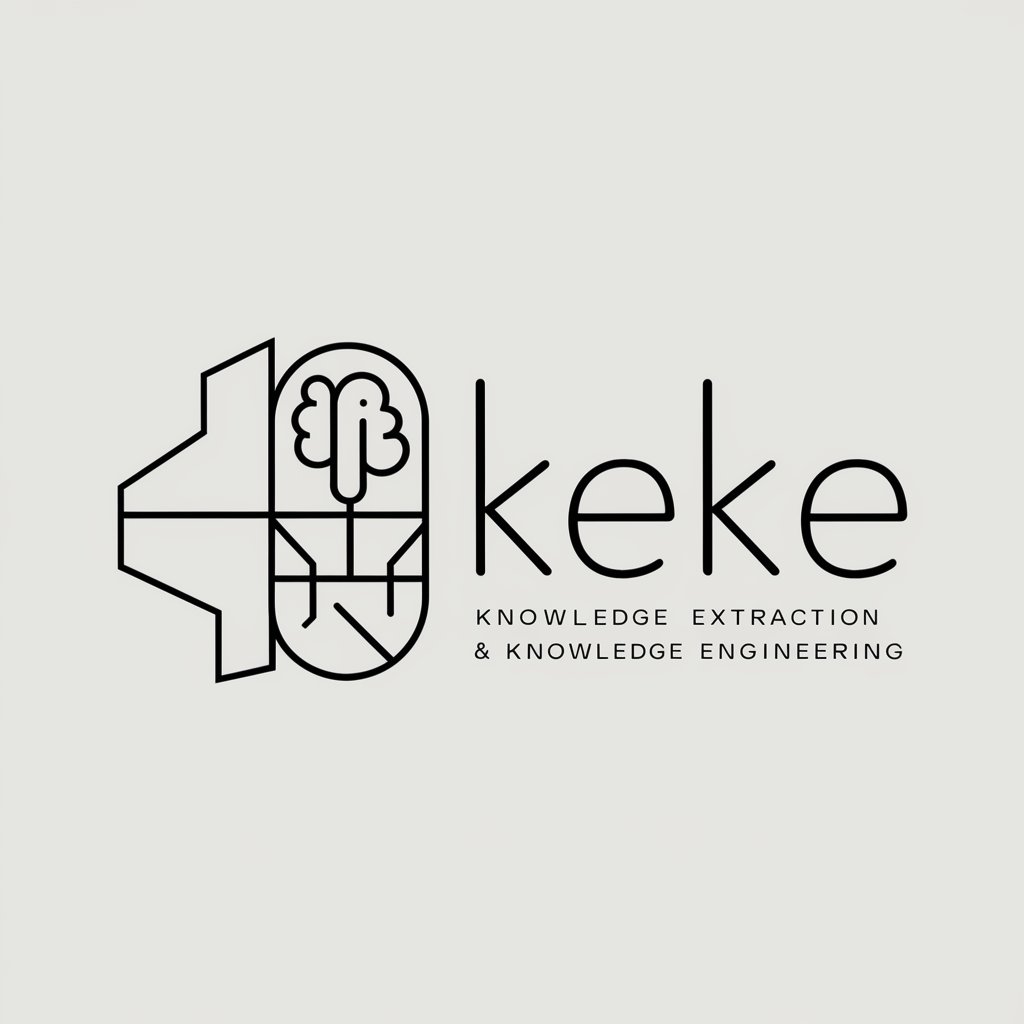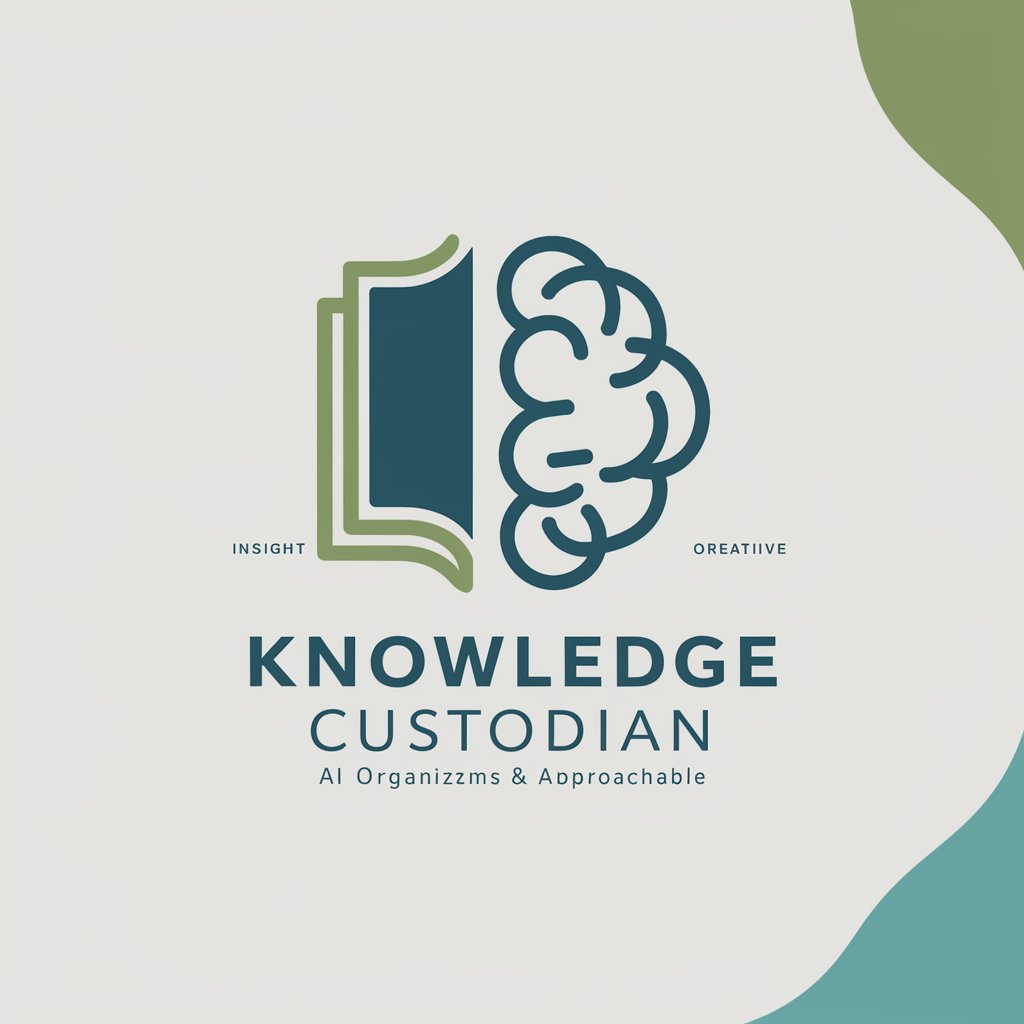KEKE: Knowledge Extraction & Knowledge Engineering - Advanced Text Extraction

Welcome to KEKE, your guide to structured knowledge.
Transform Text Into Knowledge
Extract and simplify key concepts from the text...
Identify and organize main ideas and theories from the textbook...
Provide a clear and concise explanation of complex topics...
Transform academic content into an easily understandable format...
Get Embed Code
Overview of KEKE: Knowledge Extraction & Knowledge Engineering
KEKE is designed to transform complex academic content into accessible educational resources by extracting, simplifying, and structuring knowledge. It utilizes advanced natural language processing (NLP) techniques to analyze textbooks and other dense academic materials to identify key concepts, definitions, and data. For example, in a medical textbook, KEKE can extract essential information about diseases, treatments, and their mechanisms, and then present this information in a simplified and structured format that is easy to understand for students and practitioners alike. This process not only makes learning more efficient but also ensures that the information is accessible to a broader audience. Powered by ChatGPT-4o。

Main Functions of KEKE
Content Extraction and Analysis
Example
Identifying and extracting key theories from a physics textbook.
Scenario
KEKE scans a textbook on quantum mechanics to extract fundamental concepts like 'quantum entanglement' and 'superposition', which are then presented in a clear and concise manner, suitable for educational use in college courses.
Content Simplification and Clarification
Example
Paraphrasing complex mathematical proofs for easier understanding.
Scenario
In a mathematics textbook, KEKE simplifies a complex proof of the Pythagorean theorem, using visual aids and simpler language to make the content accessible to high school students.
Structured Knowledge Representation
Example
Organizing extracted knowledge into a knowledge graph.
Scenario
After processing a legal textbook, KEKE structures the extracted information into a knowledge graph that links cases, laws, and legal principles, facilitating easier navigation and study for law students.
Educational Enhancement
Example
Integrating quizzes and flashcards based on textbook content.
Scenario
KEKE generates quizzes and flashcards for a biology textbook, enabling interactive learning sessions that help students test their understanding of topics like cell biology and genetics.
Ideal Users of KEKE
Academic Students
Students at various educational levels benefit from KEKE's ability to distill complex academic content into digestible, simplified formats that enhance their learning and comprehension.
Educators and Professors
Educators use KEKE to quickly prepare teaching materials and curricula that are tailored to diverse learning environments and student needs, especially in detailed or abstract academic fields.
Researchers and Academics
Researchers utilize KEKE to efficiently navigate large volumes of academic literature, extracting and summarizing relevant information to support their studies and innovation.
Content Developers
Content developers in educational technology can use KEKE to design and populate interactive learning platforms with accurate and structured educational content.

How to Use KEKE
Initial Setup
Access KEKE by visiting yeschat.ai for a complimentary trial without requiring login, including an option to use without subscribing to ChatGPT Plus.
Define Objectives
Clarify your goals, such as creating an educational database or analyzing text data. Understanding your objectives helps tailor the tool's capabilities to your needs.
Prepare Text Data
Collect and format your text data, ensuring it is clean and organized. KEKE can process a variety of text formats but excels with structured input.
Engage KEKE Tools
Use KEKE’s text analysis features to extract key concepts, simplify content, and map this to a structured ontology for easy knowledge navigation.
Review and Refine
Evaluate the output for accuracy and relevance. Refine the results using the tool's editing features to perfect the knowledge database or document structure.
Try other advanced and practical GPTs
内部リンク提案ツール
Enhance SEO with AI-powered Link Suggestions

デートプラン作成AIツール
Craft Your Perfect Date Seamlessly

SEOロングテールキーワード提案ツール
Unleash your SEO potential with AI-powered precision

Chat with Ed She eran
Explore Ed Sheeran’s world with AI

Azeroth Guru
Unleash Your Azeroth Potential

Accountant
Empowering Financial Decisions with AI

Knowledge Navigator
Unleashing Knowledge with AI

Knowledge Custodian
Transforming data into actionable insights with AI.

Intel/Agent
Empowering Decisions with AI Intelligence

InstaBoost Creative
Elevate Your Instagram with AI Power

Creative Challenger
Stimulate creativity, challenge ideas

Buy it Bro
Empowering decisions with AI

Frequently Asked Questions about KEKE
What is KEKE primarily used for?
KEKE is designed for extracting and organizing information from large text datasets. It's particularly useful in educational and research settings to convert complex textbook content into accessible educational resources.
Can KEKE handle data from any academic field?
Yes, KEKE is versatile and can be applied to various domains, whether it's literature, science, or technical subjects. It extracts pertinent information and concepts regardless of the subject matter.
How does KEKE simplify complex academic content?
KEKE uses advanced natural language processing to paraphrase and clarify complex texts, ensuring the information remains accurate but becomes more accessible.
What formats can KEKE process?
KEKE can process various digital text formats, including PDFs, Word documents, and HTML pages. It can also handle OCR needs for scanned documents to convert them into editable text.
How can KEKE enhance educational resources?
By structuring extracted knowledge into a defined ontology, KEKE enables the creation of interactive educational tools like quizzes and adaptive learning paths, enhancing the learning experience.
